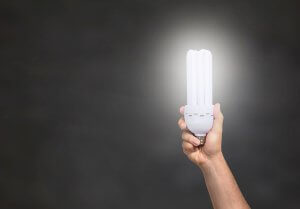As we are experiencing COVID-19 there is a good possibility that you are working from home, your children are schooling from home – and generally, you are spending more time at home.

Also as we have underlined in our posts, given the uncertainties it is very important that you manage your costs. Cost management can be achieved both by reducing revenue leakage – that is unnecessary costs incurred because of your behaviour – and by reducing the ‘nice to have’.
One of the monthly costs that you incur is the cost of electricity and water. In this post we present a number of tips which we suggest you follow which will help you reduce your utility bills. Indeed these are tips that you should retain even when we are post a COVID-19.
- Fridges and Freezers – 63%
- Washing machines and dishwashers – 10%
- Cooking – 7%
- Lighting – 6%
- Consumer electronics – 4%.
- Turn down your thermostat – just reducing it by 1°C could cut 10% off your heating bill
- Turn off the lights – when you leave a room
- Fill up your washing machine, tumble dryer and dishwasher – one full load uses less energy than two half loads. Wash your clothes at 30ºC and do not use the tumble dryer if you can avoid it
- Do not overfill your kettle –boil the amount of water you need for the number of drinks you are making at the time
- Unplug all chargers when not in use, especially any that have display lights
- Turn off tablets, laptops and TV boxes as soon as you stop using them, and ideally unplug them
- Do not charge electrical items once they reach 100% or leave them charging overnight
- Unplug your internet router when the last person goes to bed
- Always turn lights off when leaving a room, regardless of how long for
- Now might be a good time to think about replacing any inefficient bulbs you still have around the house
- Be conscious of how many lights you have on and whether they all need to be in use
- Reduce your washing machine use by just one cycle per week
- If you are planning on using the oven, see if you can batch cook or bake several things at the same time, to take advantage of the energy used to heat it





- Never put hot food directly into the fridge or freezer, allow it to cool on the side first
- Do not hold the door of the fridge or freeze open for extended periods of time, as it will have to work harder to cool the temperature afterwards
- Keep your fridge at 5ºC or less. On average, we keep our fridges at 7ºC, which means our food goes off sooner
- If you batch cook, freezing the excess and reheating each portion in a microwave when you require it would use less energy than cooking the same meal from scratch every time
- Always cover your pots and pans – the water will boil faster and use less energy to heat your food
- Turn off the heat a couple of minutes before your food is fully cooked – particularly if have an electric cooker, as they take some time to cool down and will continue to cook your food
- Do not open the oven door repeatedly – you’ll let out hot air and waste energy. If you can, take a look through the glass door instead
- Spend 1 minute less in the shower
- Replace 1 bath a week with a 5-minute shower
- Use a water-efficient showerhead – now is the time to buy one if you do not have one
- A running tap wastes more than 6 litres of water every minute, so turn off the tap while brushing your teeth, shaving, or washing your face
- A dripping tap can waste more than 5,300 litres of water a year, so make sure your taps are properly turned off and change washers promptly when taps start to drip
- Always use cold water if you do not need hot water
- Use full flush only when you need to
- https://energysavingtrust.org.uk/blog/tvs-are-electricity-guzzlers-%E2%80%93-you-need-see-bigger-picture
- https://energysavingtrust.org.uk/blog/energy-saving-tips-when-you-are-stuck-home
- https://energysavingtrust.org.uk/blog/top-five-tips-save-energy-kitchen
- https://energysavingtrust.org.uk/blog/top-five-tips-save-energy-kitchen
- https://energysavingtrust.org.uk/home-energy-efficiency/saving-water



